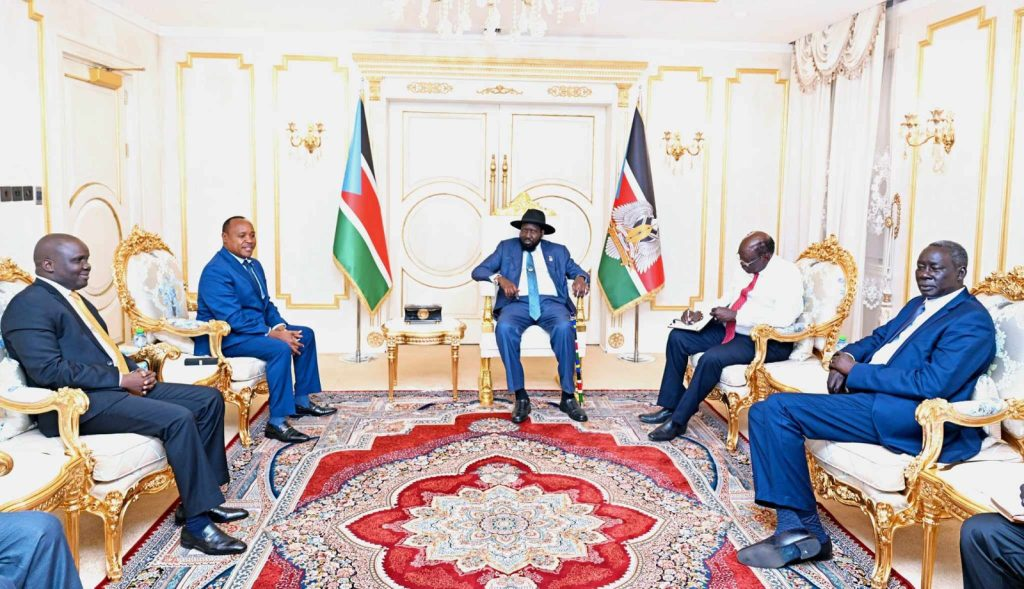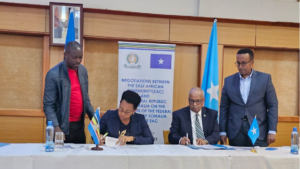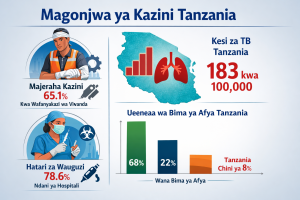
The Stage is Set to Welcome Somalia into the East African Community: Is it Premature?
Vetting and Verifying Somalia Credentials
At the Africa Investment Forum Held in Marrakech, Morocco, on November 9, East African Community (EAC) Secretary General Dr. Peter Mathuki disclosed that Somalia was on the verge of being admitted into the community within the Month. After a period of negotiations held in Nairobi and the adoption of verification reports, Somalia is set to join other 7 EAC members over a decade since her maiden application was made. In the ever-evolving geopolitical landscape of East Africa, the prospect of Somalia’s imminent admission into the East African Community (EAC) marks a pivotal moment for the region.
As the Ordinary Heads of State Summit approaches, scheduled for November 23-24 in Arusha, the integration of Somalia into the EAC raises questions about the challenges the nation may encounter and the opportunities it presents for both Somalia and its prospective EAC partners. One would therefore wonder whether the imminent entry of Somali into the community is premature considering her complex history and the failures of the latest members that still drag the success of the union behind schedule.
The East African Community, Somalia
Currently, the East African Community brings together 7 partner states with the goal of widening and deepening cooperation within and with other regional economic communities across political, economic, and social benefits for mutual benefit. Cited as the fastest-growing building block of the African Union, the community has DR Congo as its youngest member having joined in April 2022.

With the admission of Somalia, the EAC will stretch the common market area into a population of over 300 million with expectations of boosting trade outcomes and highlighting the region as a target area for foreign investment. Somalia is further expected to enjoin a 3,333 km coastline, the longest in Africa, into the bloc while giving the bloc access to the Arabian Peninsula and boosting trade. This is significant in tapping into the unexplored Somalia market which could potentially boost intra-EAC trade which has since grown twofold from below 10% to around 20% in recent years and hit the US$10 billion mark in 2022.
Challenges on the Horizon
Somalia’s journey to EAC membership is not without historical complexities as suggested by a decade waiting period. The nation has faced prolonged political instability, civil unrest, and the challenges of state-building. The precarious security situation in Somalia and the Horn of Africa raises concerns about the readiness of the country, and the EAC bloc in facilitating security, regional, and peace stability. The bloc’s efforts for peacekeeping in DRC, the current youngest member have for instance been met with skepticism due to concerns around funding, safeguards for civilians, and coordination with existing UN forces. This is in addition to the clear exclusion of Kigali and different perspectives held by Rwandese President Kagame on restoring peace into the country.
Further, a consideration of Article 7 of the EAC Treaty indicates that the criteria for admitting new members include adherence to principles of good governance, democracy, the rule of law, human rights, and social justice. Somalia scores poorly on these attributes due to decades of civil war, violent extremism, corruption accusations, a poor human rights record and justice, and poor democratic credentials. While recent developments show promise with the establishment of a functional administration and renewed efforts to fight terrorism, Somalia, and the EAC are yet to make a compelling case for handling these historical challenges. Thus, the EAC must navigate these complexities to ensure that the admission process contributes to Somalia’s political stabilization rather than exacerbating existing challenges.
The economic challenges Somalia faces are substantial given that the country has long been dependent on the informal sector with substantial economic disparities. With a long history of conflict, the nation needs robust economic reconstruction efforts. Integration into the EAC offers economic opportunities, but it also demands significant adjustments. The case of economic unpreparedness is characterized by South Sudan and Burundi who are yet to disburse US$27.4 Million and US$7.44 million respectively as their annual contributions that were due by the need of 2022 into the community. This raises questions on the preparedness of Somalia particularly on meeting its financial obligations when some newer entrants are already free-riding despite making financial commitment.
“Somalia needs to enhance its administrative and regulatory frameworks to align with the EAC’s standards.”
Somalia’s economic infrastructure needs substantial investments and reforms to align with the standards of the EAC. The challenge lies not only in rebuilding the economy but in doing so in a way that ensures inclusive growth for all segments of society. Concerns on whether the country’s informal economy dependent on agriculture, livestock, and fishing could fail to align with quasi-industrialized economies in the EAC raises questions on compatibility. With a long history of conflict, the country has to contend with capital flight which drains its resources and creates a consumer-based economy, impacting its competitiveness in the EAC landscape.
Effective participation in the EAC requires strong institutional capacity. Somalia needs to enhance its administrative and regulatory frameworks to align with the EAC’s standards. This involves building the capacity of government institutions, addressing corruption, and improving governance structures. The challenge is not merely to meet the immediate requirements for EAC membership but to establish sustainable governance structures that will benefit the nation in the long run.
Membership in the East African Community means that citizens are exempt from visa requirements and can travel freely by business and leisure within the region. While this is a preserve of individual countries, the prospect of some nations denying Somali citizens entry would be counterproductive to the spirit of the Union. Of critical consideration, however, is the jitters around the prospect of Somali-based insurgents moving freely within the community. Moreover, there are concerns about the preparedness of the partner states to deal with the unregulated influx of economic migrants, and smuggling of contraband and arms that have been associated with the Somalia coastline.
The concern is however on whether the Somali government can strengthen its cross-border institutions, particularly around the recently launched digital national identity card. These could, in addition to facilitating free and fair elections for better democratic outcomes, help in controlling economic crimes, money laundering, and terror financing.
As Somalia embarks on its journey toward EAC membership, the challenges are formidable, but the opportunities are equally promising. The success of Somalia’s integration lies in the collaborative efforts of both Somalia and its prospective EAC partners. By addressing historical complexities, focusing on economic rebuilding, and engaging in regional cooperation, Somalia can not only overcome the challenges but emerge as a key player in the East African community. The road ahead may be challenging, but the destination offers a vision of a stable, prosperous, and integrated Somalia contributing to the collective growth of the East African region.



